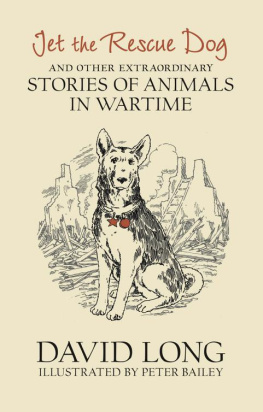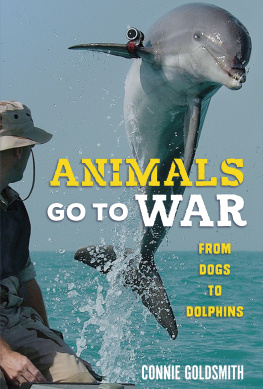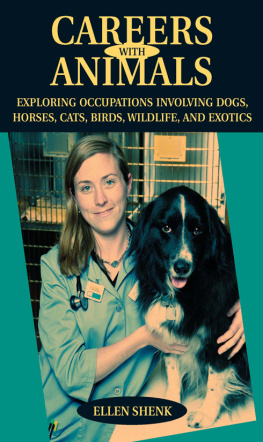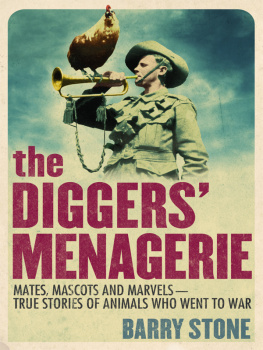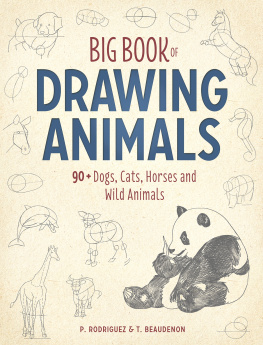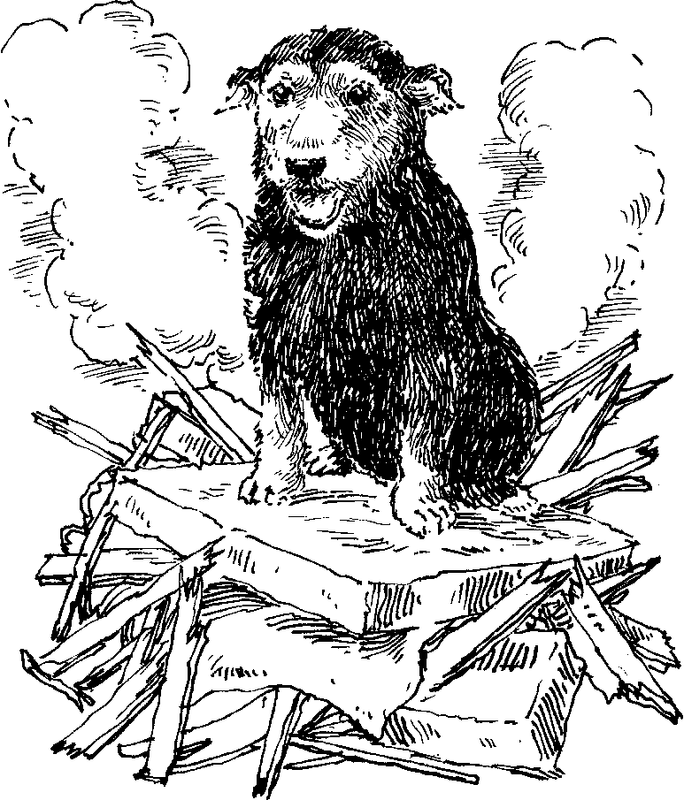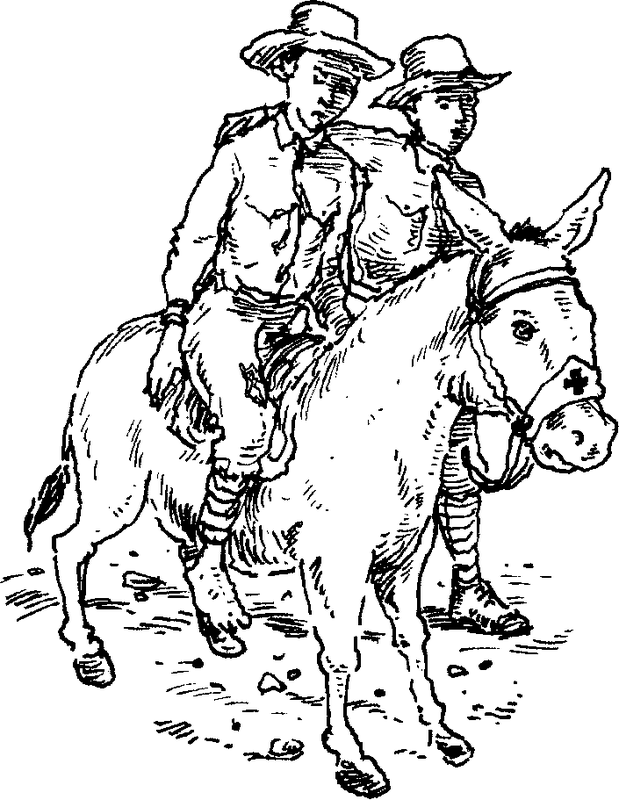FOR AS LONG AS THERE have been wars, animals have been out there saving lives. Over the years cats, dogs, horses and even birds have shown incredible courage and devotion, and this book tells their extraordinary stories.
Not all of these adventures have happy endings, but every one is true. They show us the unique bond that can develop between animal and man, and, by reminding us that not all heroes are human, cast a shining light on some of the worst moments in a hundred years of history.
THE BLITZ SECOND WORLD WAR LONDON, 1940
W hen we watch the news after a natural disaster such as an earthquake or tornado we often see dogs on television helping police and soldiers look for people buried in the rubble. These animals are highly trained and form an important part of the teams which specialise in this kind of urban search and rescue. Amazingly the first dog ever to do this had no training at all, and yet Rip was one of the best when it came to finding survivors.
During the Second World War, in 1940, the wire-haired terrier turned up at the scene of an air raid in East London. No-one knew who he was or why he was there. I dont suppose he knew either, but when he saw people clambering over the ruins looking for survivors perhaps he thought it was a game and decided to join in.
Terrible scenes of devastation were common during the Blitz, when more than a million homes, shops and factories were damaged or destroyed by enemy bombs falling on British cities. In London it was the job of Air Raid Precautions (ARP) wardens to warn people to take cover before each air raid. After the All Clear was sounded these same ARP wardens led the search for survivors.
The terrier started following one of the wardens around, a man called Mr King. Mr King liked dogs and felt sorry for this particular one, which didnt have a collar and looked rather hungry. The dog seemed genuinely grateful when Mr King gave him a piece of sandwich left over from his supper, and soon joined Mr King when he went on his rounds each night, directing people to the safety of the air-raid shelters.
No collar meant no name tag, so Mr King decided to call his new friend Rip. He thought the little dog was probably homeless, as many were during the war. Thousands of families left London for the safety of the countryside, forgetting their cats and dogs in the rush to leave. Other pets lost their homes as a result of the air raids.
After one of these raids Mr King was searching the site of a burned-out factory. Rip saw what he was doing and started to sniff around. This is something dogs do instinctively as a way of understanding the world, and it is something they are incredibly good at.
Depending on its breed, a dogs nose is as much as ten million times more sensitive to smell than yours. A human nose has around five million scent-detecting cells but a dog has nearly three hundred million of them, and the reason a dogs nose is cold and wet is because this helps it capture even more scent.
Using just his nose, a dog like Rip is able to interpret the world in a way we could not hope to copy. When humans smell their lunch they just smell lunch, but a dog can detect every ingredient individually. Similarly, just as a particular scent might alert a person to the presence of another animal somewhere nearby, that same scent will tell a whole story to a dog. What kind of an animal it is, whether it is male or female, young or old, and even what mood it is likely to be in.
Knowing this, Mr King realised that Rip wasnt just sniffing around the ruined building for fun and that when he started wagging his tail it must be because he had found something interesting beneath the broken bricks and splintered timber.
The warden started digging and shortly afterwards, when a man was pulled alive from the rubble, Mr King realised that Rip had a real talent for finding people in trouble. It wasnt just Rips superior sense of smell that helped him do this, but also his curiosity and inexhaustible energy. Best of all, because terriers are such small dogs, Rip was able to squeeze his way into spaces which were far too tight for a person to wriggle through.
The risks Rip faced while doing this were considerable. Often there were fires still burning inside the buildings and occasionally unexploded bombs. The scale of destruction meant that walls could topple down at any time, and broken glass was a common problem. Rip refused to be scared by any of this, however, and his sense of adventure meant that as soon as a raid was over he was desperate to get stuck in. Clambering over the ruins, braving the smoke and flames, he went out night after night for as long as the raids continued.
Altogether Rip spent five years on duty, and was soon famous in London for having what we call a sixth sense when it came to finding survivors. Sometimes the other wardens would want to call a halt and go home, convinced they had searched every square centimetre of a burned-out factory or warehouse. But Mr King knew that if Rip refused to leave the site it was because somehow he knew that someone was still trapped and needed their help.
Rip simply never got it wrong. His super-sensitive nose, the sight of his short stubby tail wagging rapidly from side to side, and above all the scrabbling noise of his little paws pushing away at a pile of bricks and tiles, was all the proof Mr King needed to keep looking. When Rip refused to give up the wardens would go back and search the ruins again and every time the dog would be proved right and another person would be rescued.
This astonishing success rate meant that Rip soon had new friends all over his part of the city. In those days it was a very poor area and food was strictly rationed; but many of the locals still insisted on giving Rip a little treat whenever he trotted around the corner. His biggest fans werent just the dozens of survivors he helped to rescue either, but also the people he met out on his nightly patrols with Mr King.
For all of them it must have been a frightening time to be living in the capital, but somehow having Rip around made things more bearable. He was such a happy character and was always pleased to see a new face. People also thought that if Rip could cope with the war then so could they.
Most of all people hoped the fighting would end and that life could go back to normal, but sadly for Rip it never did. Exhausted by all his hard work, and perhaps weakened by inhaling smoke and fumes from so many burning factories and other buildings, his little heart eventually gave up. When it did he was buried in a new cemetery created for animal heroes at Ilford in Essex, but his cheerful character and tireless enthusiasm means that he has never been forgotten. A few years ago a collector paid a fortune for the medal Rip used to wear on his collar, and today he is remembered as one of the pioneers who demonstrated how useful dogs can be when it comes to searching for survivors in peacetime as well as war.
BATTLE OF GALLIPOLI FIRST WORLD WAR TURKEY, 1915
H elicopters and specially-equipped armoured vehicles are used to rescue troops injured in battle, but in the past soldiers who were wounded had to rely on other soldiers acting as stretcher-bearers to carry them to safety. Rescues likes this were difficult and dangerous, especially when heavy fighting meant stretcher-bearers could themselves be killed or injured. This is what happened in 1915 in a place called Gallipoli on the coast of Turkey, but luckily a plucky donkey called Murphy rode bravely to the rescue.

